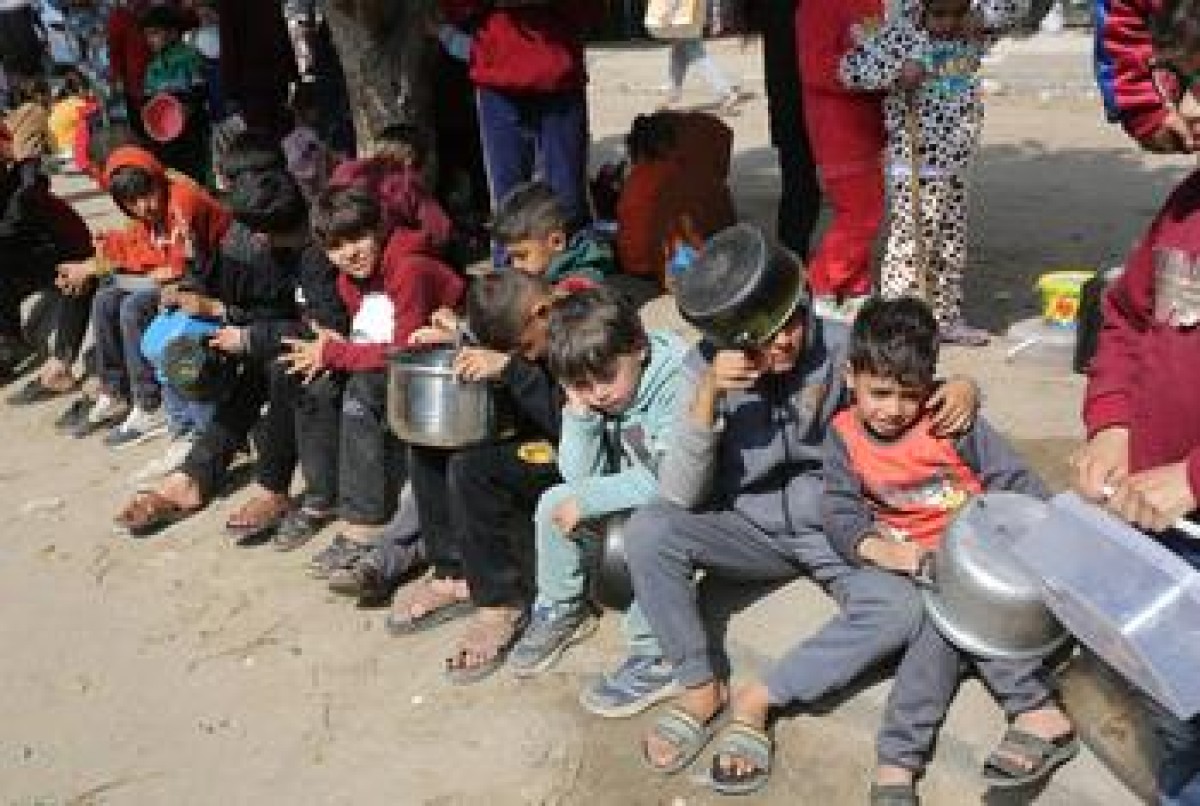The United Nations Humanitarian Coordinator in Palestine: Hunger has reached catastrophic levels in Gaza


In his statements to reporters in New York via video from Jerusalem - McGoldrick spoke about his recent visit to the Gaza Strip, and said that what was different this time from his previous visits was the less crowding in the city of Rafah after the displaced began to leave the city for fear of a military incursion, as They are heading towards Khan Yunis, Deir al-Balah, and the Al-Mawasi area.
The UN official said that the United Nations is preparing a contingency plan for two possibilities: “The first is a humanitarian truce, and the second is a military incursion into Rafah.” He stressed that humanitarian workers are struggling to meet the enormous needs of people in Gaza, "but there are major constraints." He pointed to the rapid increase in disease outbreaks and food insecurity, reiterating that the health system has become dilapidated, and also alerting to the serious shortage of shelter places in terms of tents and plastic sheets.
The plight of women and children
The United Nations Coordinator for Humanitarian Affairs in the Palestinian Territory said that during his recent visit to Gaza, he met with a number of community leaders who came from central Gaza, Khan Yunis, and Rafah, and spoke about “the desire for a decent life despite the circumstances.” He added, "There was a teacher at the meeting and she was worried about the danger of a violent invasion. She said that her son had packed a school bag, not for school, but to be displaced."
He further explained that those he met at that meeting, most of whom were men, highlighted the plight of women and children, and the impact of war on them in relation to issues of privacy and personal care for women and nutritional concerns for children.
He also talked about his meeting with a group of women in a camp in the Al-Mawasi area that was established by the local community. He said that the women he met talked about the issue of privacy, hygiene problems due to the lack of clean water, and the lack of feminine sanitary products, and some of them talked about using seawater to wash.
He said that women spoke of being subjected to violence from their husbands and sexual harassment while heading to shared bathrooms at night in crowded displacement sites. He added that some women spoke of the feeling of anger overwhelming their husbands, which may be due to their feeling of helplessness due to their inability to provide for their family’s needs.
He added: “A woman told me: When she walks between the tents at night, she hears the sound of women crying. Another woman mentioned that her husband was very angry and severely beat her outside the tent in front of the other women.”
Anxiety as Ramadan approaches
McGoldrick recounted the experience of a Palestinian woman he met in Gaza. She said that she gave birth to twins in a shelter in the absence of medicine, and that she is now unable to breastfeed due to a lack of nutrients because she only eats canned food and bread.
McGoldrick also reported that all the women he met expressed their anxiety and fears that “Ramadan will come next week, and they have nothing to prepare for, and nothing they can give to their families or do for them.”
Preventing famine
The UN official warned that hunger had reached catastrophic levels, especially in northern Gaza, stressing that in order to prevent famine, there was a need to significantly increase humanitarian aid.
He called for relief convoys to be allowed to use the military road or the “border fence road” on the eastern side of the Strip to allow the passage of supplies coming from the Kerem Shalom and Rafah crossings to the north, and for at least 300 trucks to be allowed to enter daily.
He added that they should also be allowed to use the port of Ashdod instead of trying to find another port. He also warned that although airdrops of aid are useful, “it will not meet the great needs that can only be met by ground transportation.”